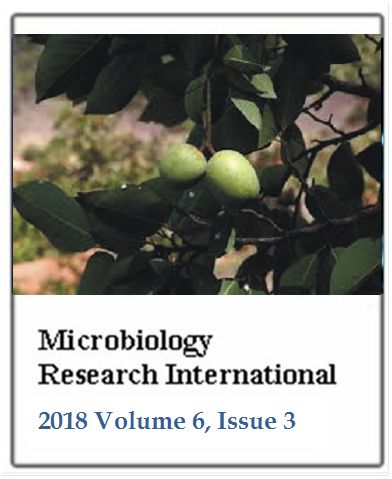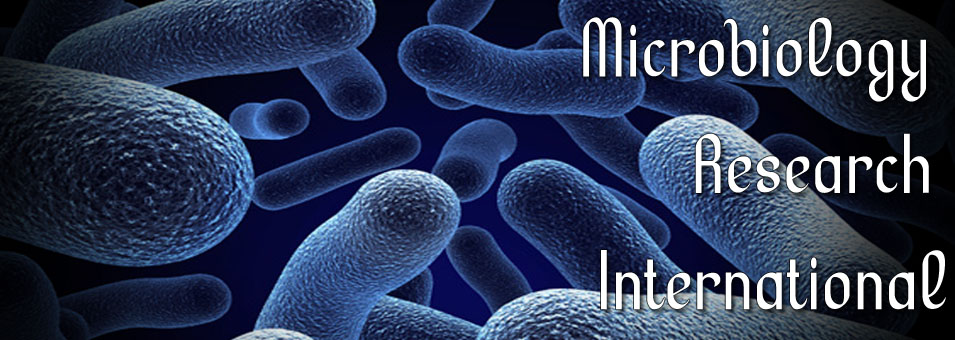Effects of postharvest Irvingia fruit wastes on soil microbial diversity and physico-chemical properties
Ebimieowei Etebu, John M. A. Torunana and Josephine AnisoMicrobiology Research International
Published: July 20 2018
Volume 6, Issue 3
Pages 24-39
DOI: https://doi.org/10.30918/MRI.63.18.016
Abstract
The effects of Irvingia fruit wastes on soil microbial diversity and physico-chemical properties were assessed through metagenomics and chemical analyses. Topsoil was thoroughly homogenized and separated into three different groups (Treatments 1, 2 and 3 soils respectively). Treatment 1 soil samples were assessed without any further processing. Treatment 2 soil samples were incubated for 14 days at ambient temperature and assessed whilst Treatment 3 soil samples were amended with Irvingia fruit wastes and incubated for 14 days at same temperature. Results showed that microbial diversity, total sequence reads, Operational Taxonomic Units (OTUs) and soil physico-chemical properties were influenced by Irvingia fruit wastes. Bacterial diversity for Treatments 1, 2 and 3 soils were 0.90, 0.28 and 0.93, respectively whilst bacterial total sequence reads and OTUs amplified from Treatment 1, 2 and 3 soils were 3,040 (82 OTUs), 23,544 (87 OTUs) and 16 (10 OTUs), respectively. Fungal diversity for same soil samples were 0.95, 0.80 and 0.33, respectively. Fungal total sequence reads and OTUs were 4,394 (50 OTUs), 55 (13 OTUs) and 27713 (39 OTUs), respectively. Bacterial OTUs amplified from Treatment 3 soil belonged to Streptococcus pneumoniae (25%), Novosphingobium aquiterrae (12.50%), Shewanella haliotis (12.50%), Acinetobacter iwoffii (12.50%), Pseudomonas syringae (6.25%), Delftia tsuruhatensis (6.25%), Sulfobacillus species (6.25%), Nocardioides species (6.25%), Pseudonocardia species (6.25%) and Clostridium species (6.25%). Predominant fungal OTUs from same soil were Issatchenkia hanoiensis (81.42%), Pichia species (6.28%), Coniochaeta fasciculate (5.61%) and Candida diversa (2.14%). Irvingia fruit wastes triggered an increase in soil pH, total nitrogen, total organic carbon, sulphate, phosphate, chlorine, calcium and sodium but not potassium. Irvingia fruit wastes would potentially, positively impact agriculture and bioremediation of oil polluted soils.
Keywords: Metagenomics, operational taxonomic units, 16S rRNA gene, internal transcribed spacer region, Irvingia, bacteria, fungi, soil health and fertility, organic amendment.
Full Text PDF
